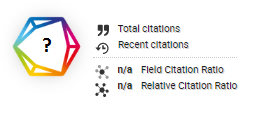EFEKTIVITAS INTERVENSI SPIRITUAL MANAGEMENT OF RELAXATION THERAPY (SMARTER) DALAM UPAYA MENCEGAH DEPRESI IBU POSTPARTUM
DOI:
https://doi.org/10.46984/sebatik.v25i2.1541Keywords:
Ibu Postpartum, Depresi, Perawatan, Kontemporer, SmarterAbstract
Di Indonesia, 50-70% wanita mengalami sindrom yang berkembang menjadi depresi postpartum dengan variasi sekitar 5% sampai lebih dari 25% setelah melahirkan. Depresi postpartum adalah suatu keadaan seorang ibu merasa sedih, bersalah, dan bentuk depresi umum lainnya dalam waktu lama setelah melahirkan, hal ini dapat menyebabkan ketidakmampuan ibu untuk merawat dirinya dan bayinya, sehingga diperlukan upaya intervensi oleh tenaga kesehatan dalam memberikan pelayanan kesehatan ibu postpartum. Penelitian ini bertujuan untuk menganalisis efektivitas intervensi Spiritual Management of Relaxation Therapy (SMARTER) dalam upaya pencegahan depresi ibu nifas. Penelitian ini menggunakan desain penelitian quasi-experimental pre-test post-test with control group design yang dibagi menjadi 2 kelompok (17 responden pada kelompok intervensi dan 17 responden pada kelompok kontrol). Hasil uji normalitas data diperoleh data terdistribusi normal, sehingga hasil analisis menggunakan uji t berpasangan menunjukkan bahwa terjadi perbedaan tingkat depresi sebelum dan sesudah intervensi SMARTER pada kelompok intervensi (p-value-0,000) dan control (p-value 0,004), sedangkan hasil analisis menggunakan uji t tidak berpasangan menunjukkan bahwa terdapat perbedaan tingkat depresi sesudah intervensi SMARTER antara kelompok intervensi dan kontrol dengan nilai p-value 0,000. Penelitian ini juga dapat memberikan rekomendasi kepada tenaga kesehatan khususnya bidan agar dapat memberikan pelayanan berupa pelayanan asuhan yang komplementer.
References
Bakara, D. (2013). Efek Spiritual Emotional Freedom Tecnique Terhadap Cemas dan Depresi Sindrom Koroner Akut. Buletin Peneltian Sistem Kesehatan.
Budiyarti, Y., & Makiah. (2018). Murottal Al Qur ’ an Therapy Effect on Ansiety Level of Third Trimester Primigravida Pregnant Women. Jurnal Citra Keperawatan, 89–99.
Chen, C., Tseng, Y., Chou, F., & Wang, S. (2000). Effects of support group intervention in postnatally distressed women. A controlled study in Taiwan. Journal Psychosom Res, 49(6), 395–399.
Chen H, J, W., Ch’ng, Y., Mingoo, R., Lee, T., & Ong, J. (2011). . Identifying mothers with postpartum depression early: integrating perinatal mental health care into the obstetric setting. ISRN Obstet Gynecol.
Girsang, B. M. (2013). Pengobatan Perilaku Kognitif untuk Depresi Postpartum Cognitive Behavior Therapy for Postpartum Depression. Jurnal Kesehatan Masyarakat Nasional, 8, 9–12.
Gobel, F. A. (2019). Pendekatan Pencerahan Qolbu Untuk Kesehatan Odha. Leutikaprio.
Hahn-Holbrook, J., Cornwell-Hinrichs, T., & Anaya, I. J. F. I. P. (2018). Economic And Health Predictors Of National Postpartum Depression Prevalence: A Systematic Review, Meta-Analysis, And MetaRegression Of 291 Studies From 56 Countries.
Hanifah, R. S., & Kusumawati, S. Y. (2017). Faktor-Faktor Yang Berhubungan Dengan Kejadian Depresi Postpartum Di Wilayah Kerja Puskesmas Karanganyar Kabupaten Karanganyar Tahun 2017. Universitas Muhammadiyah Surakarta.
L Murray, Hallingan, S., & Cooper, P. (2010). Effects Of Postnatal Depression On Mother– Infant Interactions And Child Development. 2, 192–220.
Liu, H., & Yang, Y. (2021). Efects of a psychological nursing intervention on prevention of anxiety and depression in the postpartum period: a randomized controlled trial. Annals of General Psychiatry, 20(2), 1–7.
Norhayati, M. (2015). Magnitude And Risk Factors For Postpartum Symptoms: A Literature Review. 34-52.
O’Hara, M. (2009). Postpartum Depression: What We Know. 12, 1258-1269.
Roacky, H., & Aini F. (2015). Pengaruh SEFT terhadap tekanan darah penderita hipertensi. Jurnal Keperawatan Sudirman.
Rusner, M., Berg, M., & C Begley. (2016). Bipolar disorder in pregnancy and childbirth: a systematic review of outcomes. BMC Pregnancy Childbirth, 19(1), 331.
S Farías-Antúnez, Xavier, M., & Santos, I. (2018). Effect Of Maternal Postpartum Depression On Offspring’s Growth. 228, 143–152.
Safitri, Nashori, H., & Sulistyarini, I. (2017). Efektivitas Relaksasi Zikir Untuk Menurunkan Tingkat Stres Pada Penderita Diabetes Melitus Tipe Ii Relaxation With Dhikr To Decrease Stress Among Type Ii Diabetes Patients. Jurnal Intervensi Psikologi, 9(1), 1–15.
Sebela, A., Hanka, J., & Mohr, P. (2018). Etiology, risk factors, and methods of postpartum depression prevention. . . Ceska Gyneko, 83(468–473).
Susilowati, Pramana, N., & Muis, S. F. (2019). Intervensi Non Farmakologi Terhadap Kecemasan Pada Primigravida. Jurnal Ilmu Permas STIKES Kendal, 9, 181–186.
Wisner, K. L., Chambers, C., Sit, D., & Jama. (2016). Postpartum Depression: A Major Public Health Problem. 21, 2616-2618.
Xu, H., Ding, Y., Ma, Y., Xin, X., & Zhang, D. (2017). Cesarean section and risk of postpartum depression: a meta-analysis. J Psychosom Re, 97, 118–126.
Yamashita, H., & Yoshida, K. (2013). : Screening and intervention for depressive mothers of new-born infants. Seishin Shinkeigaku Zasshi, 1129–1135.
Yim, I. S. (2015). Biological And Psychosocial Predictors Of Postpartum Depression: Systematic Review And Call For Integration. 11.
Yuniarsih, S. (2018). Penggunaan SEFT ( Spiritual Emotional Freedom Technique ) untuk membantu Ibu hamil menurunkan kecemasan menghadapi Persalinan. STIKES PKU Muhammadiyah Surakarta, 1, 262–270.
Zainuddin, A. F. (2014). Seft Total Soution Healing, Happiness, Success, Greatness : Sefter Handbook: Seft Corporation. Afzan Publishing.
Downloads
Published
How to Cite
Issue
Section
License
Authors retain all their rights to the published works, such as (but not limited to) the following rights; Copyright and other proprietary rights relating to the article, such as patent rights, The right to use the substance of the article in own future works, including lectures and books, The right to reproduce the article for own purposes, The right to self-archive the article








